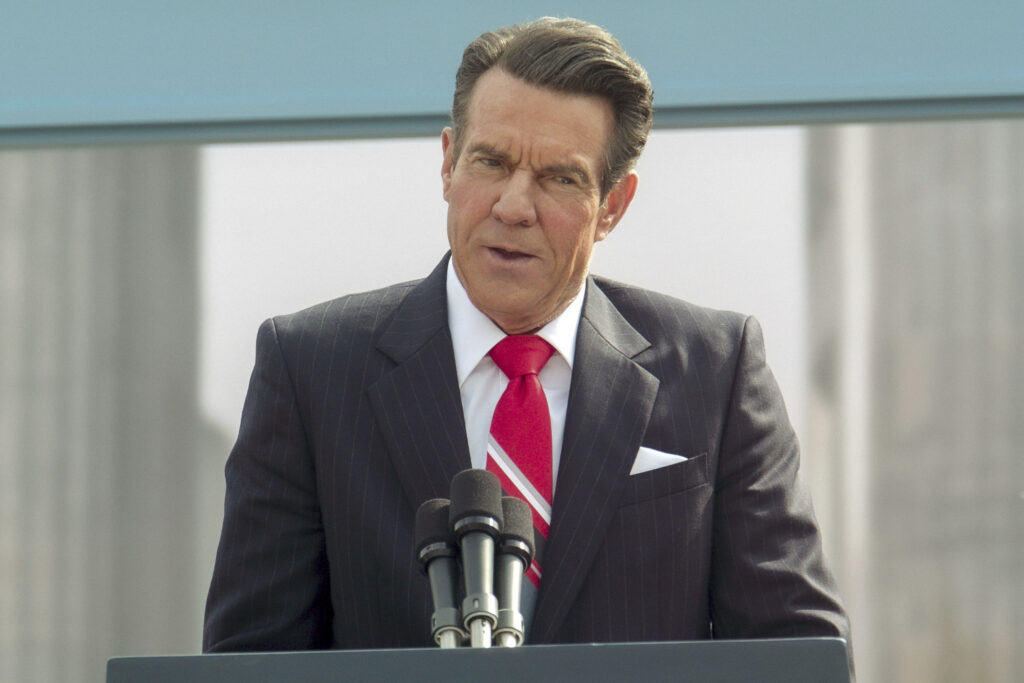‘Reagan,’ Now Streaming Online, Provides Template for Unifying Our ‘Deeply Divided’ America
Gallup finds that 80 percent of American adults reckon the country is ‘greatly divided.’ When Reagan was inaugurated, that number was 17 percent.

“Reagan,” is now available for home viewing, boasting a 98 percent positive score among audiences on Rotten Tomatoes and an A on Cinemascore. Coming in the final stretch of a presidential campaign where, whoever wins, the losing side will be outraged, the biopic of President Reagan as a unifying figure comes at the perfect time.
Last month, a Gallup survey found that 80 percent of American adults believe the country is “greatly divided on the most important values” and 22 percent of registered voters are “satisfied” with the way things are going. When Reagan was inaugurated on January 20, 1981, Gallup found that number at only 17 percent.
Following Watergate, there had been a loss of faith in the office of the presidency itself, with people arguing that the job was “too big for any one man.” In “Reagan,” we see a man who overcame challenges large enough to sink anyone. His alcoholic father. The loss of his infant daughter. His acting career and first marriage failing.
Reagan is forced to take jobs endorsing everything from Pabst Blue Ribbon beer to cigarettes. “The world,” as an invented Russian character in “Reagan” says, “was passing him by.” With a deep faith in God, and an amiable disposition fixing a smile on his face that confounded foes, he persisted through the darkness in search of light.

The wilderness years of influential people are always fascinating to historians. We are voyeurs, as is everyone watching the portrayal by the actor, Dennis Quaid, as the titular character of “Reagan.” In how people meet challenges when they think no one is watching, we can find inspiration to overcome our own trials and tribulations.
Although Reagan lost confidence in his destiny, he never lost faith in America. “As a citizen,” he says in testimony on Capitol Hill about communist infiltration of Hollywood in the 1950s, “I would not like to see any political party outlawed… Democracy is strong enough to stand up for itself against the inroads of any ideology no matter how much we disagree with it, because I still believe that democracy can handle it.”
Reagan never succumbed to the temptation to blame “the system” for his inability to “do some good in this world,” as he tells the first lady, Nancy. Saying “the party left me,” he switches from the Democratic to the Republican Party, runs for governor of California, and wins two terms.
During the upheaval over the Vietnam War, “Reagan” shows the governor joking with college protesters. Rather than mocking the students or calling them “anti-American,” a slur once forbidden that has crept into our politics, Reagan seeks common ground through mutual respect and charm. He never “punches down” or threatens opponents — even the USSR — with force.
In 1976, Reagan’s challenge of President Ford for the Republican nomination falls short. He thinks it’s his “last chance,” but in 1980, he beats both Mr. Carter and a Republican running as an independent, Congressman John Anderson. His 44-state landslide was tremendous, but Reagan built on that support. In 1984, he defeated his Democratic opponent, Vice President Mondale, by winning 49 states.
That’s to what people refer when they talk about Reagan as a unifying figure.
“I told somebody afterwards,” Mondale said, “that I think I would have voted for Reagan if I weren’t running, because he is a nice guy. He never was mean to me. I was never mean to him. And look at that campaign. It was a pleasant year, I think, for Americans. I think we ended up a united country, and so I could see why the average American liked the guy.” Talk about a Reagan Democrat.
The 22nd Amendment prohibited Reagan from running for a third term, but his view president, George H. W. Bush, succeeded him in 1988 — the first election of a sitting vice president since 1836. Three weeks after President Clinton returned Democrats to the White House four years later, he made a pilgrimage to Reagan to get off on the right foot.
“Reagan” dramatizes its subject’s optimism in the face of impossible odds. It also illustrates what can be accomplished when a leader puts his duty to citizens first, whether they agree with him or not. “I know that for America,” the president said in his letter announcing that he had Alzheimer’s Disease, “there will always be a bright dawn ahead.”
The need for “unity” is a common theme for both President Trump and Vice President Harris. In “Reagan,” they have a template for actions that bring such rhetoric to life. Voters — watching on Apple TV, Amazon, Fandango at Home, Vudu, or Xfinity — can call on their preferred candidate to emulate Reagan’s example, too, healing divisions so that “Morning in America” can again dawn for all.

